Argentina
With Mike Pompeo and Jorge Faurie´s presence, the AMIA bombing victims were remembered at AMIA
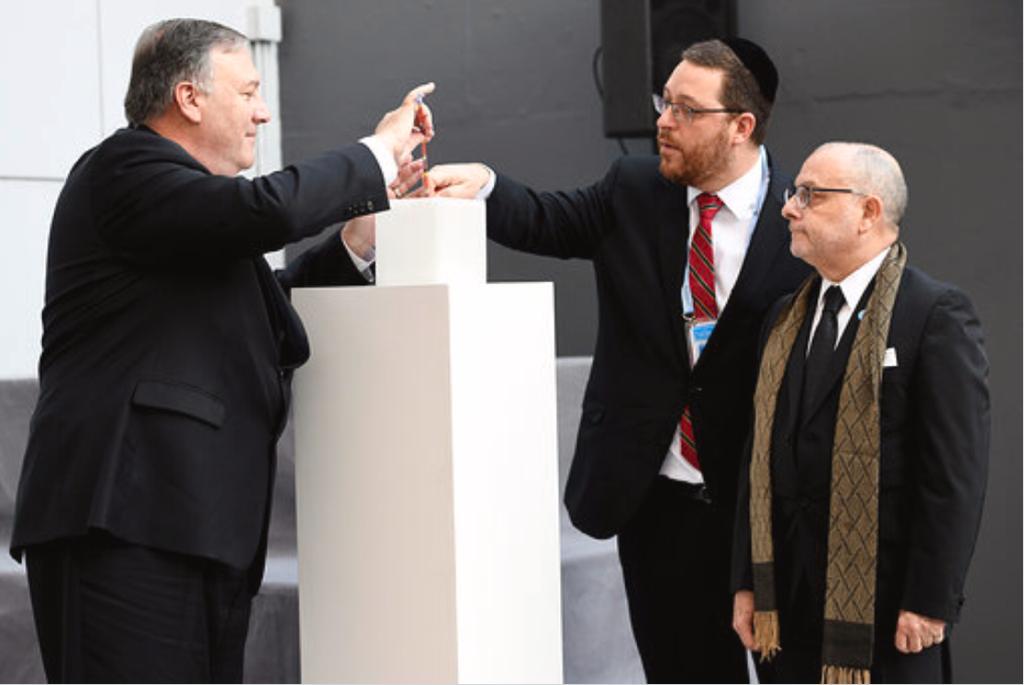
Agencia AJN.- Within the framework of the Hemispheric Ministerial Conference on the Fight against Terrorism, a tribute was paid on Friday at the AMIA headquarters to the victims of the attack of July 18, 1994, whose speakers were the Secretary of State of the United States government, Mike Pompeo; the Minister of Foreign Affairs and Worship of Argentina, Jorge Faurie; and the President of AMIA, Ariel Eichbaum.
The ceremony included the presence of the foreign ministers, ministers and high dignitaries of the countries of the American continent that since yesterday have been participating in Buenos Aires in the Second Hemispheric Ministerial Conference on the Fight against Terrorism.
The homage began with the music of pianist and composer Leo Sujatovich, then Pompeo, Faurie and Eichbaum lit a candle next to the memorial that recalls the names of each of the 85 fatal victims of the terrorist attack. The monument, by Israeli artist Yaacov Agam, is located in the dry square of the institution, at Pasteur 633, and represents the AMIAS’ commitment to memory and the demand for justice.
During his speech, AMIA´s president Ariel Eichbaum stressed the importance of the tribute made in the context of the 25 years of the terrorist attack: «It is a true honor and it is very significant for us to welcome you today, and the fact that this homage is carried out within the framework of the Summit that is taking place in Buenos Aires».
He also recalled Iran and Hezbollah´s responsability in the attack perpetrated in 1994, something that was proven repeatedly by the Argentine justice system. Referring to Interpol’s endorsement of the international arrest warrants against the accused, and the validity of the red flags, Eichbaum emphasized: «Today I ask the foreign ministers and dignitaries present here. The entire international community has to understand that these people are wanted by the Argentine justice system to account for the crime they have committed. We urgently need the support of all, of each of the countries of the world. Otherwise they will continue to mock and evade the red flags, and we will not have justice».
«Hezbollah is a terrorist organization fully active in several countries on our continent. Its networks have extended to various illicit activities, that are aimed to raising money for its terrorist campaigns. That is why we consider it appropriate, important and fundamental that a concrete step is taken in the fight against terrorism in the region, with the decree that President Mauricio Macri signed a few hours ago for the creation of a Registry of Terrorist Persons and Organizations where Hezbollah has already been included It is imperative that our neighboring countries and brothers do the same», he added.
In turn, the Secretary of State of the U.S. government, Mike Pompeo, especially thanked Eichbaum for receiving him at the AMIA headquarters and highlighted the institution´s struggle in seeking justice these 25 years. Then he recalled the 85 fatal victims who were killed «by the hands of Hezbollah terrorism, in a planned attack by the Islamic regime of Iran, with the logistical assistance of the Revolutionary Guard».
«It was not the first time that Hezbollah attacked in Argentina», he said, remembering the terrorist attack perpetrated on March 17, 1992, on the Israeli embassy in our country, in which 29 people were killed. «These attacks must remind us that terrorism is not a hypothetical threat,» he expressed.
Chancellor Jorge Faurie later stressed the importance of «keeping alive the memory of the victims, their pain, their families, and all the people who were attacked. Demanding justice, we continue working tirelessly so that one day we can achieve it,» he said.
«The Jewish community is a vital part of the social, cultural and industrial fabric of Argentina. It was a blow against democracy, freedom and the Argentine society. A symbol of a community that is particularly active and integrated in our nation was chosen. The Jewish community is a vital part of the social, cultural and industrial fabric of the whole country», he added.
Faurie also referred to the recently announced measures in the fight against terrorism; «These days we have taken internal administrative measures of great relevance. Yesterday was a national mourning throughout Argentina, we reviewed the compensation system we had AMIA´s victims and, most importantly, we witnessed the decree that identifies people linked to terrorism and monitors its funds.
«Our commitment always goes a little further, because anti-Semitism does not always translate into terrorism. Antisemitism is the seed of hatred that generates violence, so we have to work to eradicate it, combat it and do it with absolute tenacity», he indicated.
The homage also included members of the Board of Directors of AMIA, the institution´s lawyer Miguel Bronfman, the secretary of Human Rights and Cultural Pluralism of the Nation Claudio Avruj, the president of the Financial Information Unit Mariano Federici, the president of the Latin American Jewish Congress Adrián Werthein, Dina Siegel Vann, director for Latin and Latin American Affairs of the American Jewish Committee, and the president of IRSA Eduardo Elsztain, among other personalities.
In homage to the fatal victims of the AMIA attack, the participants of the Hemispheric Summit signed a joint statement that was transcribed into the AMIA «Visitors’ Book», a book that was rescued from the rubble of the former Pasteur 633 building, days after the attack perpetrated by terrorism. After speeches by the three speakers, foreign ministers, ministers, dignitaries, the Secretary of the Inter-American Committee against Terrorism of the OAS signed the Declaration against Terrorism.
JOINT STATEMENT
The undersigned, representing the countries participating in the Hemispheric Ministerial Conference to Combat Terrorism, which is taking place in the City of Buenos Aires on this day, pay tribute to the victims of the Attack on the Argentine Israelite Mutual Association (AMIA), which occurred on July 18, 1994.
We also reaffirm our repudiation of terrorism in all its forms, while maintaining our commitment to strengthen cooperation among our countries to effectively confront this scourge and help build a future of peace for all.
The declaration was signed by:
Mr. Jorge Faurie, Minister of Foreign Affairs and Worship of Argentina
Mr. Mike Pompeo, Secretary of State of the United States of America
Mr. Ariel Eichbaum, AMIA´s President
Ms. Patricia Bullrich, Minister of Security of Argentina
Mr. Darren Allan Henfield, Minister for Foreign Affairs of the Bahamas

Argentina
Entrevista con Marcos Aguinis: su nuevo libro y la amenaza del antisemitismo
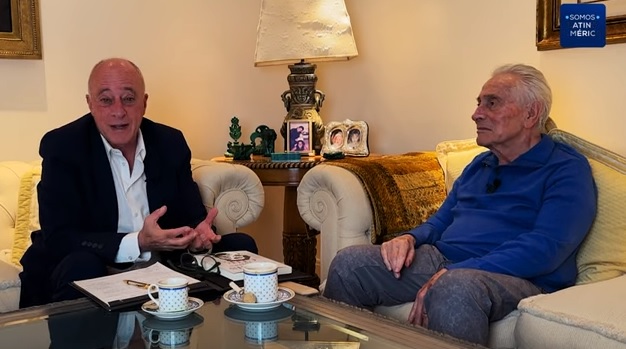
Agencia AJN.- Con sus 90 años, Marcos Aguinis acaba de publicar “Intimidades del Che”, una obra de ficción que explora la vida de Ernesto “Che” Guevara. En el marco de un ciclo de entrevistas conducido por Daniel Berliner, director de la Agencia AJN, el escritor reflexionó sobre su nuevo trabajo y sobre fuerte aumento del antisemitismo a nivel mundial.
“El 7 de octubre es un acontecimiento muy reciente. Y que aparentemente era imposible que ocurriera. Uno tiene que pensar que lo fundamental es que los judíos no nos convirtamos en fanáticos. Que no imitemos a nuestros enemigos. Y odian a Israel sin saber qué son los judíos. A muchos antisemitas se les pregunta ¿usted sabe dónde queda el río Jordán? Ni idea, responden. Nos encontramos con una fuerte ignorancia a la que tenemos que enfrentar mediante la paz, el diálogo, que lleve a que este enfrentamiento desaparezca. Al desaparecer este motivo de odio, desaparecerán otros motivos de odio”, destacó Aguinis.
“Es más fácil odiar que amar, y esto tiene que ser combatido. Y es combatido por las mentes más lúcidas. El antisemitismo que ahora se propaga en las universidades es algo que tiene poco a poco producir la vergüenza de los universitarios. No saben qué odian”, agregó.
La entrevista fue transmitida por Dnews en el ciclo “Diálogos”, una entrega semanal que propone un espacio de conversación inteligente, plural y comprometido con la actualidad.
En cada emisión, personalidades relevantes del ámbito político, social, cultural y comunitario se sientan a dialogar sobre los temas que marcan la agenda nacional e internacional.
“Hace unos años Jorge Fernández Díaz me tituló a mí ‘hombre del renacimiento’, porque quedó impresionado por la cantidad de actividad que hago. Según él, eso me hermanaba con la gente del renacimiento, que tenía varias profesiones y en todas ellas tuvo algún tipo de brillo”, expresó Aguinis al principio de la entrevista.
Para ver el programa completo:
Argentina
Rafael Grossi: “El conflicto entre Israel e Irán está tomando una dimensión mucho más amplia”
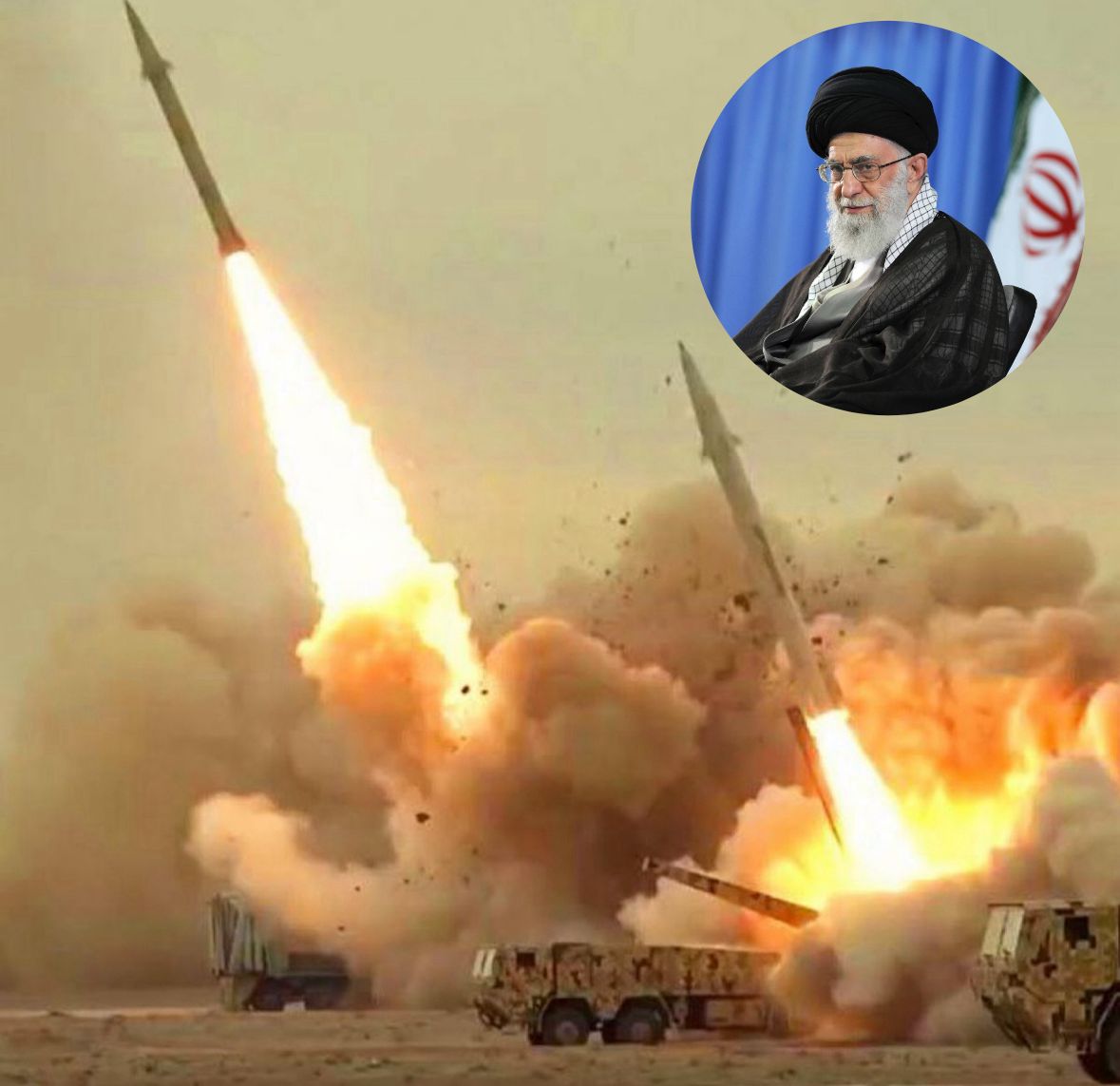
Agencia AJN.- El director general del Organismo Internacional de Energía Atómica (OIEA), Rafael Grossi, destacó que los ataques israelíes “en un primer momento fueron orientados exclusivamente a ciertas instalaciones nucleares y ahora el conflicto está tomando una dimensión mucho más amplia, incluyendo otros objetivos que no son nucleares”.
“La historia ha tomado un giro más dramático a partir del momento en que Israel, la semana pasada, inició una serie de ataques, que en un primer momento fueron orientados exclusivamente a ciertas instalaciones nucleares y ahora el conflicto está tomando una dimensión mucho más amplia, incluyendo otros objetivos que no son nucleares. La parte nuestra obviamente tiene que ver con las instalaciones nucleares y por eso ha habido una serie de reuniones en la Junta de Gobernadores del OIEA. El día viernes estuve hablando al Consejo de Seguridad de las Naciones Unidas para informar a todos los países acerca de la situación y cuáles son los peligros que pueden derivarse”, afirmó Grossi en diálogo con el periodista Eduardo Feinmann en Radio Mitre.
-¿Hay riesgo químico cuando un misil ataca a una de estas plantas nucleares?
-Hay un riesgo nuclear en primer lugar, aunque también puede haber un riesgo químico. Trato de diferenciar las dos cosas. Hay distintas instalaciones. En estas instalaciones que tienen distintas funciones, algunas son para enriquecimiento de uranio, otras son para fabricación de combustible, otros son laboratorios. Y en esos lugares entonces lógicamente hay material nuclear. Si el material nuclear, a raíz de una explosión o del impacto de un proyectil de distinta naturaleza, es liberado al medio ambiente, puede haber entonces un impacto ambiental, como radiación en la atmósfera. Esto es lo que se está tratando de determinar. Por el momento, han sido muy graves, pero si usted quiere que nos detengamos en la cuestión de la radiación, han tenido un efecto muy limitado en ese aspecto, y no me refiero al impacto o a la destrucción que han causado, se han limitado a instalaciones que tenían una cantidad relativamente limitada de material nuclear y por eso la contaminación ha sido muy limitada al lugar donde se produjo el impacto. Esto es obviamente por el momento.
-¿Usted está al tanto de una planta nuclear que está bajo tierra que tienen los iraníes y que podría llegar a ser bombardeada por Trump?
-Sí, claro, la inspeccionamos, yo la he visitado particularmente. Hay fundamentalmente dos instalaciones en las que Irán justamente ha puesto material y equipo nuclear bajo tierra a raíz de ataques anteriores que han habido en Irán, de tipo sabotaje, nunca atribuidos a ningún país. Pero el hecho es que Irán había sufrido ya en alguna de sus instalaciones sabotajes internos o ataques con drones, entonces en ese momento los iraníes decidieron, hace dos o tres años, comenzar a poner bajo tierra ciertos equipos e instalaciones.
-Para la bomba atómica, la clave está en el uranio enriquecido. ¿A qué porcentaje ya lo tenían o lo tienen preparado los iraníes?
– Para tener un arma nuclear hace falta uranio enriquecido, también puede ser plutonio, pero en el caso de Irán, lo que ellos han estado acumulando es uranio enriquecido. El uranio tiene que estar enriquecido a un grado de 90% de un isotopo, que es una variedad de la partícula de uranio, al 90%, y ellos están acumulando al 60%. No han llegado a acumular al 90%, pero de querer hacerlo es un pasito más. Ellos tienen el material, y ese material sería suficiente para 6, 7, 8 armas nucleares, pero esto no quiere decir que tengan hoy un arma nuclear.
-Israel y Estados Unidos denuncian que estaban a punto de tener 15, y entonces hicieron ese ataque preventivo para que no las terminen de fabricar.
-Eso es lo que dicen ellos, correcto. Lo que nosotros decimos, es que es inquietante esto, lo hemos informado, hemos inclusive, tenido una evaluación bastante crítica con relación a la manera en que Irán nos respondía o nos daba información necesaria sobre este tema, que ha sido bastante fragmentaria, pero no podemos decir que hoy tenga un arma nuclear. Para eso hace falta más material.
-¿Esto usted lo habló con Trump y con Netanyahu?
-No directamente con ellos, pero con gente muy cercana a ellos, sí, muy cercana.
-¿Y usted cuando los iraníes, el Ayatolá o quien sea, le cuentan lo que tienen, usted les cree?
-En cuanto a lo que tienen, nosotros sabemos lo que tienen, el tema es lo que tienen y no sabemos. O lo que no informan, esto lo he estado denunciando mucho y hace tiempo en el sentido que Irán, siempre decían o dicen que ellos no tienen nada que ocultar. Entonces nosotros, como Organismo Internacional de Energía Atómica, les decimos a ellos, si no tienen nada que ocultar, entonces tienen que mostrarnos mucho más. Ellos siempre han evadido un poco esto y bueno, estamos en esta situación en la que estamos.
-
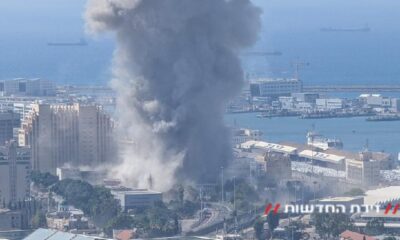
 Israelhace 12 horas
Israelhace 12 horasIsrael: 17 heridos, dos de ellos graves, tras impacto de misil balístico iraní en Haifa
-
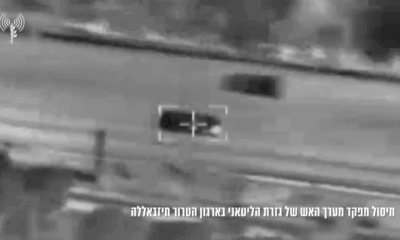
 Medio Orientehace 13 horas
Medio Orientehace 13 horasEliminado en el sur del Líbano el comandante de artillería de Hezbollah responsable de ataques contra Naharía y Haifa
-
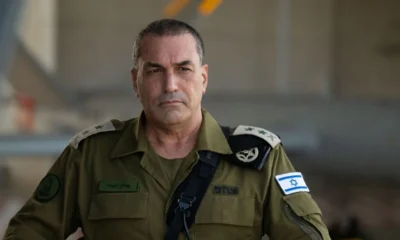
 Israelhace 8 horas
Israelhace 8 horasEl jefe de las FDI insinúa una guerra prolongada: «Lanzamos esta campaña para eliminar la amenaza»
-

 Israelhace 15 horas
Israelhace 15 horasNetanyahu y el jefe del Estado Mayor de las IDF se reúnen con altos funcionarios de EE. UU. mientras Trump evalúa atacar Irán
-
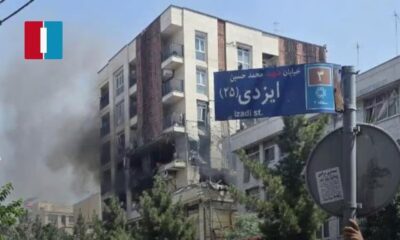
 Medio Orientehace 14 horas
Medio Orientehace 14 horasInforme: Ataque con drones en Teherán habría tenido como objetivo a científico iraní especializado en armamento
-
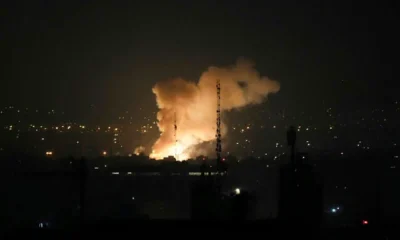
 Guerrahace 21 horas
Guerrahace 21 horasIrán. Israel ataca instalaciones militares y un centro de investigación nuclear en Teherán
-
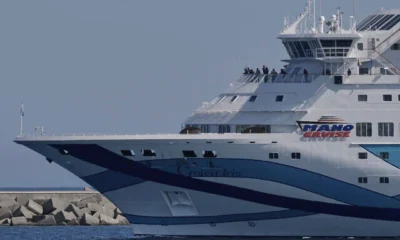
 Israelhace 14 horas
Israelhace 14 horasLa aerolínea israelí El Al ofrece a sus clientes la opción de regresar a Israel desde Chipre en crucero
-
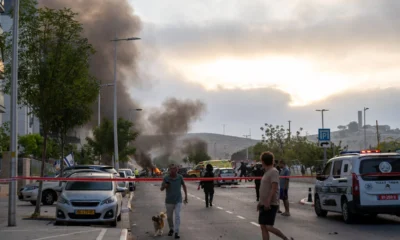
 Guerrahace 22 horas
Guerrahace 22 horasUn misil iraní impacta en Beer Sheba y causa graves daños


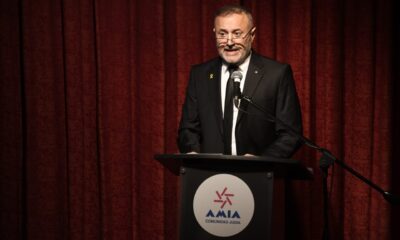

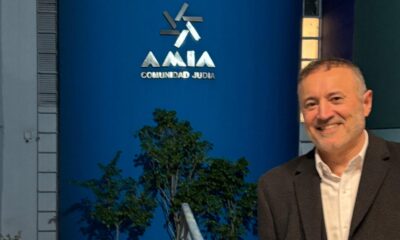

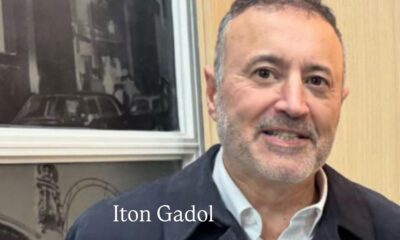

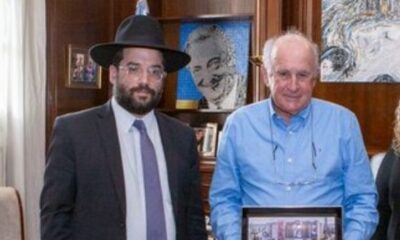

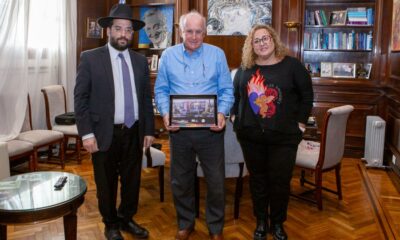


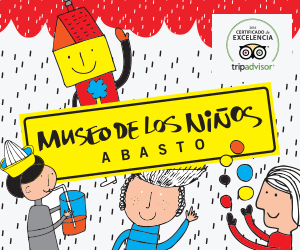
 Suscribite al Whatsapp!
Suscribite al Whatsapp!